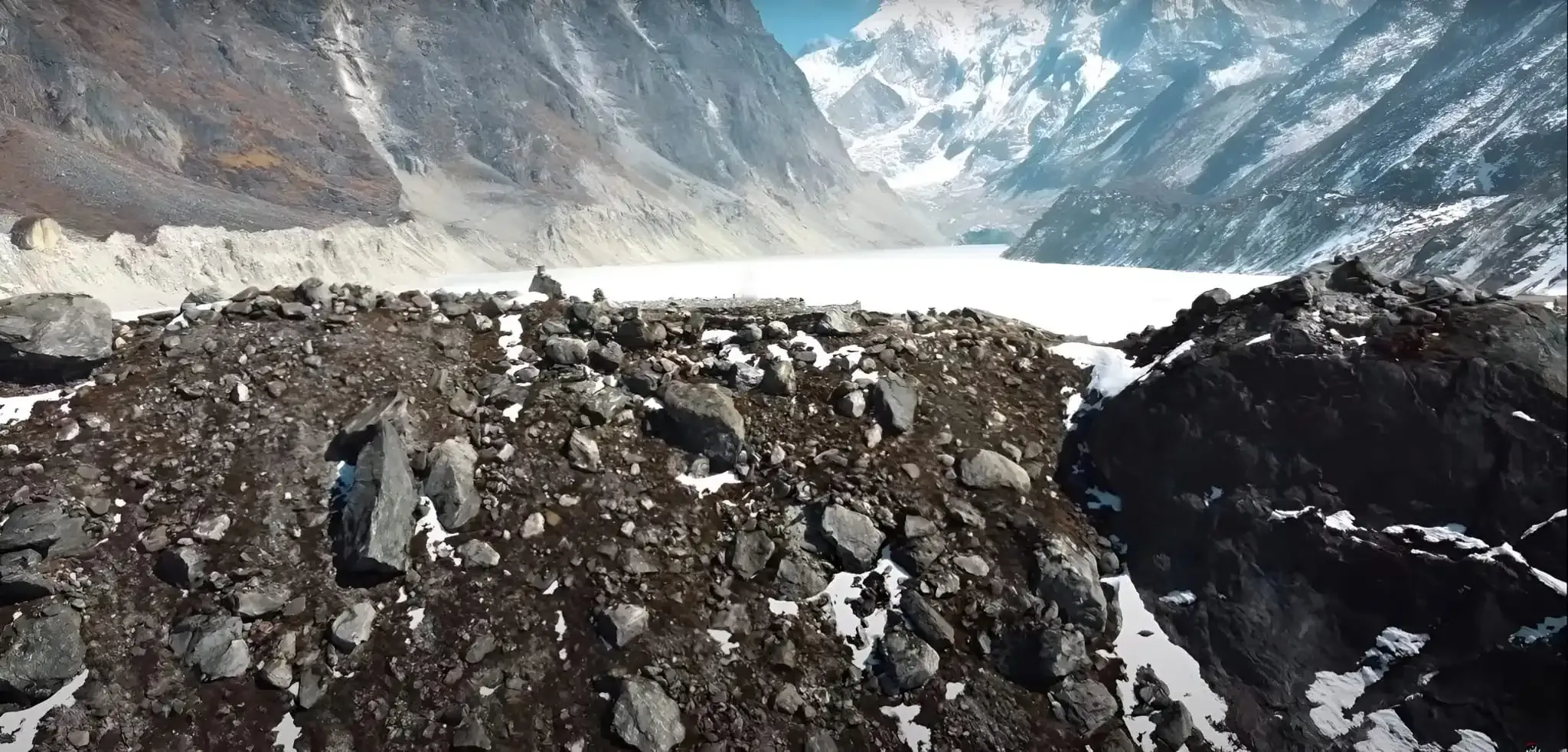Dudhkunda Solukhumbu a spiritual journey
Synopsis: The Dudhkunda trek in Nepal's Solukhumbu region is a spiritual journey to the sacred, milky-colored Dudhkunda Lake, nestled at 4,560 meters amidst the Himalayas. Starting from Phaplu, this six to seven-day trek spans 80 kilometers through rhododendron forests, Sherpa villages, and offers views of Everest. (alert-success)
 |
| Dudhkunda |
The trek to Dudhkunda passes through beautiful forests of rhododendron and oak, traditional Sherpa villages, and high altitude meadows. The trail is well-marked and offers stunning views of the surrounding mountains, including Mount Everest, Mount Makalu, and Mount Kanchenjunga.
One of the highlights of the trek is the beautiful Dudhkunda Lake. The lake is surrounded by snow-capped mountains, and its milky color is said to be due to the reflection of the mountains in its crystal clear water. The lake is considered holy by both Buddhists and Hindus, and pilgrims come here to offer prayers and perform rituals.
There is a small temple dedicated to Lord Shiva near the lake, and it is believed that taking a dip in the lake and offering prayers at the temple will wash away all sins. The lake is also home to a variety of fish, including the Himalayan snow trout, which is considered a delicacy by the locals.
The trek to Dudhkunda is also an opportunity to experience the local culture and traditions. The trek passes through traditional Sherpa villages, where visitors can see the local way of life and interact with the friendly locals. The Sherpas are known for their hospitality and are always happy to welcome visitors to their homes.
One of the most important festivals in the region is the Dudhkunda festival, which is held every year in August or September. The festival is a time for the locals to come together, celebrate their culture and traditions, and pay homage to the holy lake. The festival includes traditional dances, music, and feasting, and is a great way to experience the local culture.
Another attraction of the trek is the beautiful scenery. The trail passes through beautiful forests of rhododendron and oak, which are in full bloom during the spring season. The high altitude meadows are also home to a variety of wildflowers, and the views of the surrounding mountains are breathtaking.
The trek to Dudhkunda is considered moderate in terms of difficulty, and trekkers need to be physically fit and acclimatized to the high altitude. The trek involves steep ascents and descents, and trekkers need to be prepared for the changing weather conditions. It is advisable to trek with a guide or a porter who is familiar with the region and can provide assistance in case of any emergency.
Accommodation on the trek is available in the form of basic tea houses, which offer simple rooms and meals. The tea houses are run by the locals and provide an opportunity to experience the local hospitality and way of life. Trekkers need to carry their own sleeping bags and warm clothing, as the nights can get very cold at higher altitudes.
In conclusion, the trek to Dudhkunda is a wonderful opportunity to experience the beauty of the Himalayas and to immerse oneself in the local culture and traditions. The holy lake and the surrounding mountains offer stunning views and a sense of peace and serenity that is hard to find in the modern era.
Highlighted by the holy lake, believed to wash away sins, and the vibrant Dudhkunda festival, it combines cultural immersion with breathtaking natural beauty. Suitable for those physically fit, it requires acclimatization to high altitudes and offers basic teahouse accommodations. (code-box)

